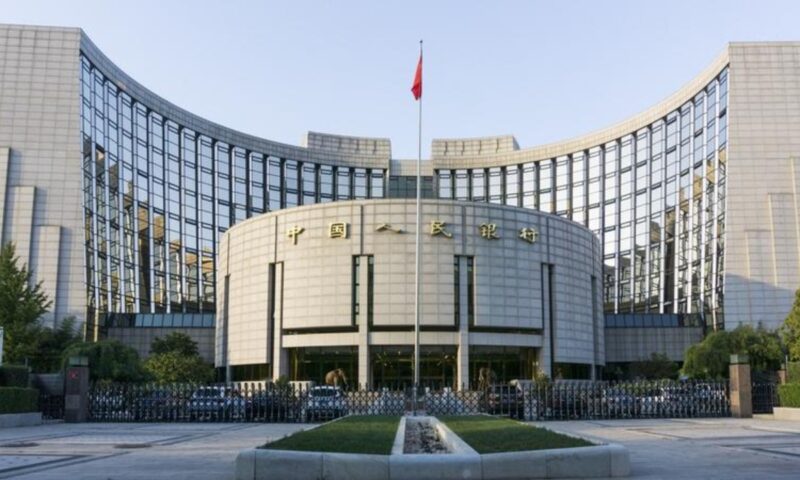China’s Central Bank has recently directed state-owned banks to curb US dollar purchases as part of its ongoing efforts to manage yuan depreciation amid the escalating US-China trade tensions. The People’s Bank of China (PBOC) is actually taking active steps right now to stabilize the forex market and prevent any further weakness in the Chinese currency.
JUST IN: 🇨🇳 🇺🇸 China Central Bank asks state-owned banks to reduce US dollar purchases.
— Watcher.Guru (@WatcherGuru) April 9, 2025
Also Read: Trump Is Not Bothered About The Recent Market Crash: Here’s Why
China’s Currency Management Strategy


PBOC Issues “Window Guidance” to Banks
The PBOC has reportedly issued informal “window guidance” to major state-owned banks this week, essentially instructing them to avoid buying dollars for their own accounts. China’s Central Bank also directed these institutions to increase scrutiny when processing client dollar purchase orders, a measure that many market observers view as an attempt to discourage speculative trading in the current volatile environment.
Large state banks were actively seen intervening in the onshore currency market on Wednesday, selling dollars and buying yuan to slow the pace of depreciation. The yuan has fallen about 1.3% this month already, and was trading around 7.35 per dollar at the time of writing, while the offshore yuan also briefly touched a record low overnight amid growing concerns over heightened US-China trade tensions.
Balancing Act: Stability vs. Export Support
One policy adviser familiar with the Central Bank’s position stated:
“A sharp depreciation will not happen as that could hurt market confidence, but a modest depreciation will help exports.”
Also Read: Chainlink (LINK) Vs. TRON (TRX): Which Is Better For This Dip?
Large state banks actively intervened in the onshore currency market on Wednesday, selling dollars and buying yuan to slow the pace of depreciation. China’s Central Bank and economic officials appear to be developing multiple approaches to address the various challenges arising from the current forex market environment.
Another adviser reportedly noted that support for key companies could come in the form of:
“Subsidies, tax rebates, or market diversification.”
The PBOC’s actions reflect its prioritization of financial market stability over using yuan depreciation as a tool to offset the economic impact of US tariffs. This strategy demonstrates the careful balance that Chinese monetary authorities are trying to maintain in response to the ongoing US-China trade tensions.
The PBOC is focusing on currency market stability rather than allowing any significant devaluation that could potentially trigger additional market volatility or even capital outflows.
Also Read: Pi Network Eyes $3 as Price Rebounds 28% Amid Token Unlock Buzz
The forex market intervention and guidance to state-owned banks represent the latest measures in the Central Bank’s continuing efforts to manage complex economic pressures. As US-China trade tensions continue to impact global markets, the PBOC’s approach suggests a strong commitment to maintaining stability while navigating the particularly challenging trade relationships that exist right now between the world’s two largest economies.





